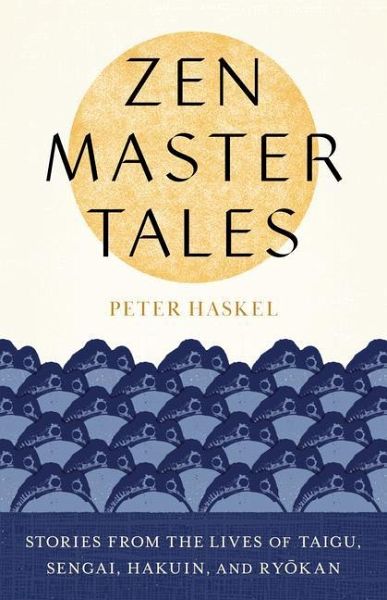
Zen Master Tales
Stories from the Lives of Taigu, Sengai, Hakuin, and Ryokan

PAYBACK Punkte
14 °P sammeln!
"Iron and Straw collects stories-heretofore mostly untranslated into English-of four prominent Zen masters from the Edo period of Japanese history (1603-1868, also known as the "Tokugawa Period"). As Haskel writes, "Zen, from its still misty beginnings in China (as Ch'an), has been deeply intertwined with its myths, its tales and 'stories.' Indeed it is the preservation and celebration of these that have imparted to the teaching much of its distinctiveness and appeal." In his learned yet accessible introduction, Haskel explains the history of Zen "stories" from the tradition's Golden Age in Ch...
"Iron and Straw collects stories-heretofore mostly untranslated into English-of four prominent Zen masters from the Edo period of Japanese history (1603-1868, also known as the "Tokugawa Period"). As Haskel writes, "Zen, from its still misty beginnings in China (as Ch'an), has been deeply intertwined with its myths, its tales and 'stories.' Indeed it is the preservation and celebration of these that have imparted to the teaching much of its distinctiveness and appeal." In his learned yet accessible introduction, Haskel explains the history of Zen "stories" from the tradition's Golden Age in China through the compilation of the classic koan collections and on to early modern Japan, the setting of his translations. What was true of the Chinese tradition, he writes-"its focus on the individual's ordinary activity as the function, the manifestation of the absolute"-continued in the Japanese context. "Most of these Japanese stories, however unabashedly humorous and at times crude, impart something of the character of the Zen masters involved, whose attainment must be plainly manifest in even the most humble and unlikely of situations." Haskel provides a succinct but detailed introductory biography for each of the four masters, as well as sufficient commentary and endnotes to make the historical and cultural references in the tales comprehensible to non-specialist readers. The stories themselves function well as vignettes, ranging from just a few lines to a little over a page. Readers can read just one or two at a time to savor the teachings contained therein, or read at length to obtain a broader view of each master's life and teaching style. The collection serves not only as a practice-text for Zen students but also as a wide-ranging window onto the fascinating literary, material, and social history of Edo Japan"--



